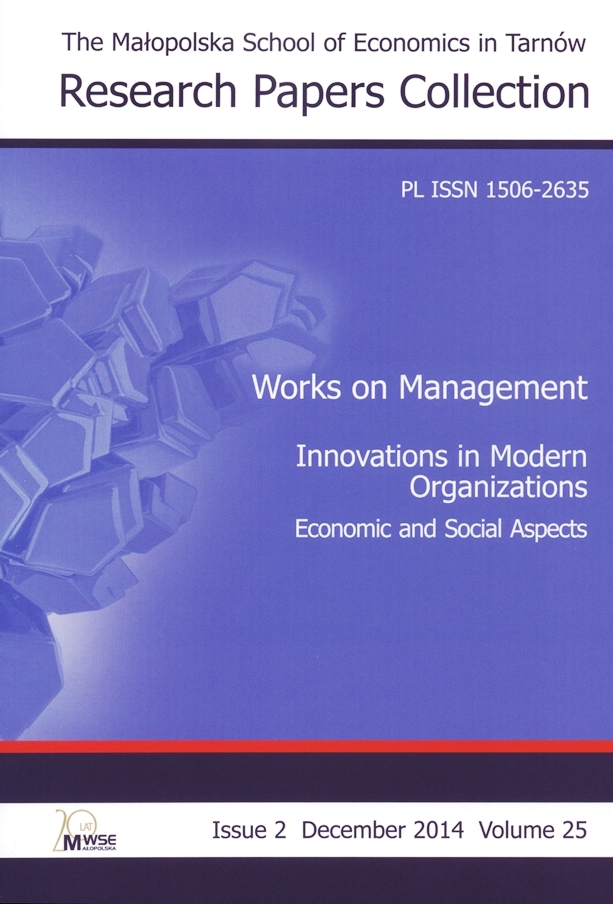Abstract
Due to the growing social consciousness and public pressure as well as legislation, the business sector is challenged to base its existence and development on the principles of sustainable development. The concept of sustainable development has emerged due to the growing problem of inequality in the world as well as global environmental problems. It aims to achieve balance between economic, social and environmental requirements so that future generations would not have to withhold because of the actions of present generations. Companies that actively participate in resolving the environmental, social and ethical issues are considered to be socially responsible companies. Basic areas of consideration in socially responsible companies are environmental protection and welfare of employees, as well as welfare of local communities and society as a whole. This paper deals with the concept of sustainable development and the application of its principles in companies in Karlovac County. It also seeks for an answer whether large companies in Karlovac County have strategic approach to corporate social responsibility.
References
Carroll, A. B. (1999). Corporate Social Responsibility: Evolution of a definitional construct. Business & Society, 38 (3), 268‒295.
View in Google Scholar
Davis, K. (1967). Understanding the social responsibility puzzle: What does the businessman owe to society? Business Horizons, 10, 45‒50.
View in Google Scholar
Hill, R. P., Stephens, D., Smith, I. (2003). Corporate Social Responsibility: An examination of individual firm behaviour. Business and Society Review, 108 (3), 339–364.
View in Google Scholar
Kotler, P., Lee, N. (2009). Društveno odgovorno poslovanje. Zagreb: M.E.P. ISBN 978-953-6807-39-0.
View in Google Scholar
Kozioł, L. Kozioł, W., Wojtowicz, A., Pyrek, R. (2013). Relationship marketing: A tool for supporting the company’s innovation process. Procedia. Elsevier.
View in Google Scholar
Krkač, K. et al. (2007). Uvod u poslovnu etiku i korporacijsku društvenu odgovornost. Zagreb: Mate ZŠEM. ISBN 978-953-2460-36-0.
View in Google Scholar
Osmanagić Bedenik, N. et al. (2010). Kontroling između profita i održivog razvoja. Zagreb: MEP, ISBN 978-953-6807-51-2.
View in Google Scholar
Šimleša, D. (2003). Podržava li biznis održivi razvoj. Društvena istraživanja Časopis za opća društvena pitanja, 12 (3–4), 403‒426.
View in Google Scholar
Vitner Marković, S., Varičak, I. (2012). Hotel companies as the main stakeholders of sustainable tourism development. Beograd. Book of Proceedings BITCO (p. 429‒439).
View in Google Scholar
WCED (1987). Report of the World Commission on Environment and Development: Our common future, UN documents [online, accessed: 2014-04-16]. Retrieved from: http://www.un-documents.net/wced-ocf.htm.
View in Google Scholar
© Copyright by Małopolska School of Economics in Tarnów. The articles are available under the Creative Commons Attribution NonCommercial-NoDerivatives 4.0 International License


